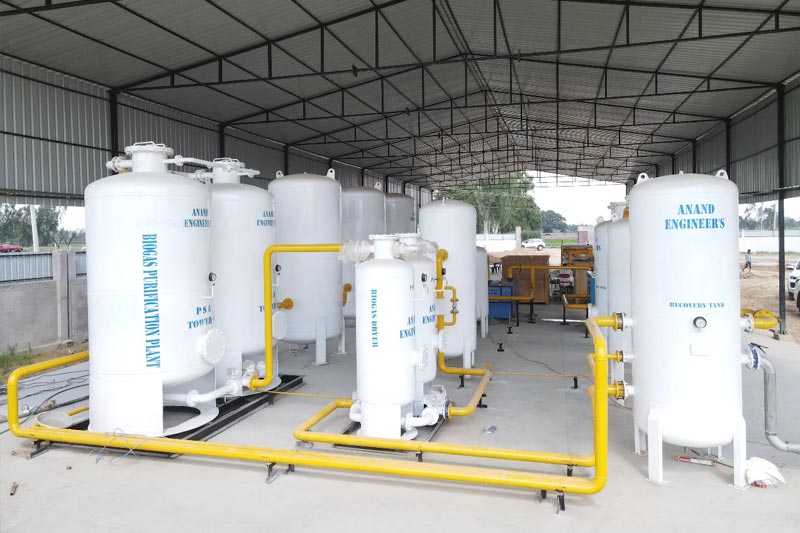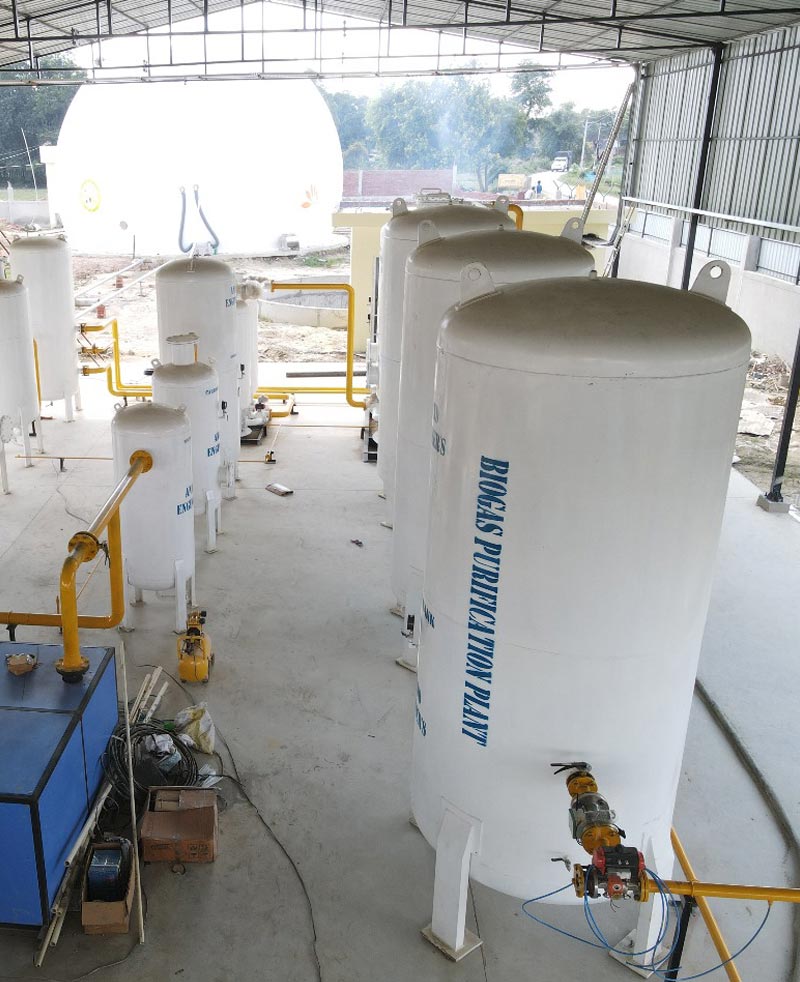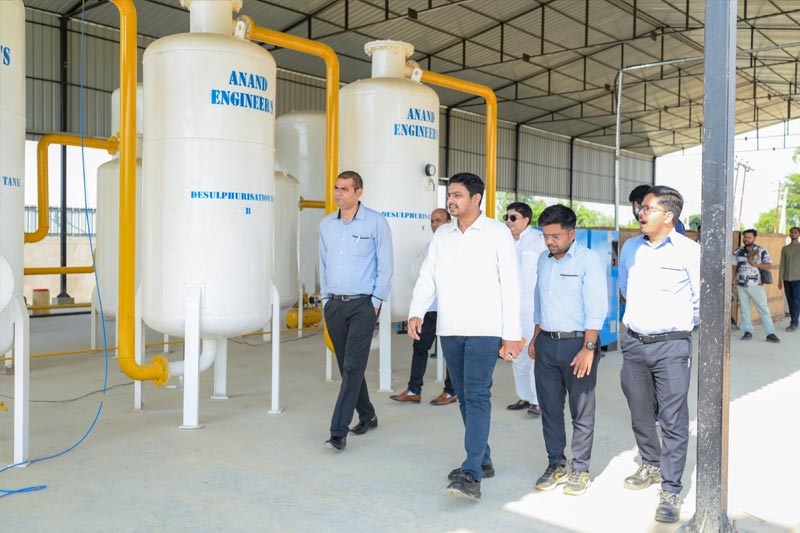Installation Process of a Bio-CNG Plants
Site Assessment & Planning
Select a site near waste sources (farms, dairies, municipalities, food industries) with reliable water and electricity supply. Ensure good connectivity to transport fuel and compliance with environmental and safety regulations.
Design & Sizing
The plant is designed based on daily waste generation and desired gas output. Small plants cater to communities, while large-scale projects produce thousands of cubic meters per day for commercial fuel supply.
Excavation & Foundation
Excavation is carried out for digester tanks and upgrading units. Strong RCC foundations are laid to ensure structural stability, safety, and long-term performance under continuous operation.
Digester Construction & Upgradation Units
Digesters are constructed using RCC, steel, or prefabricated models. Alongside, gas purification systems—like scrubbers, membrane units, or PSA plants—are installed for methane enrichment.
Compression & Bottling
High-pressure compressors compress purified biomethane to 200–250 bar. The gas is then bottled into cylinders or connected directly to a fueling station for vehicles.
Operation & Maintenance
Regular feeding of organic waste, cleaning of pipelines, and timely servicing of upgradation and compression units are essential. Monitoring methane purity ensures consistent, high-quality fuel output.





